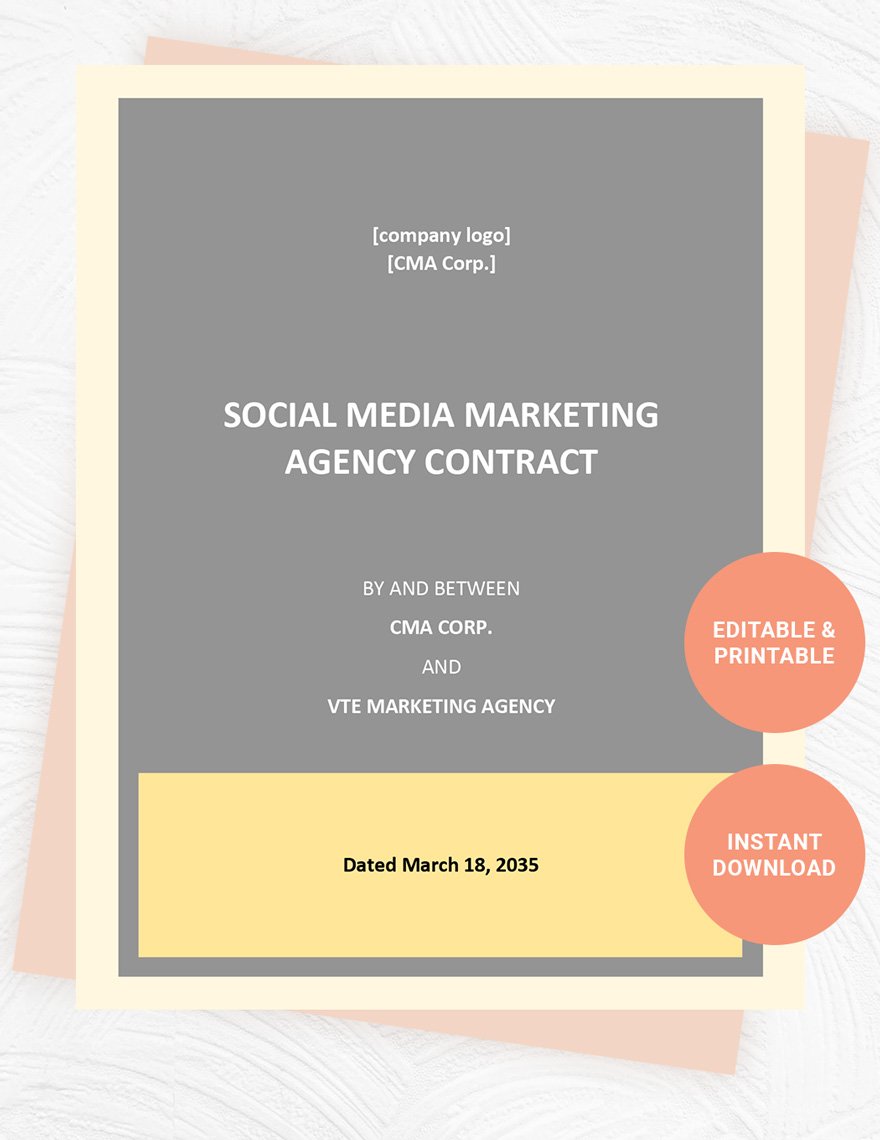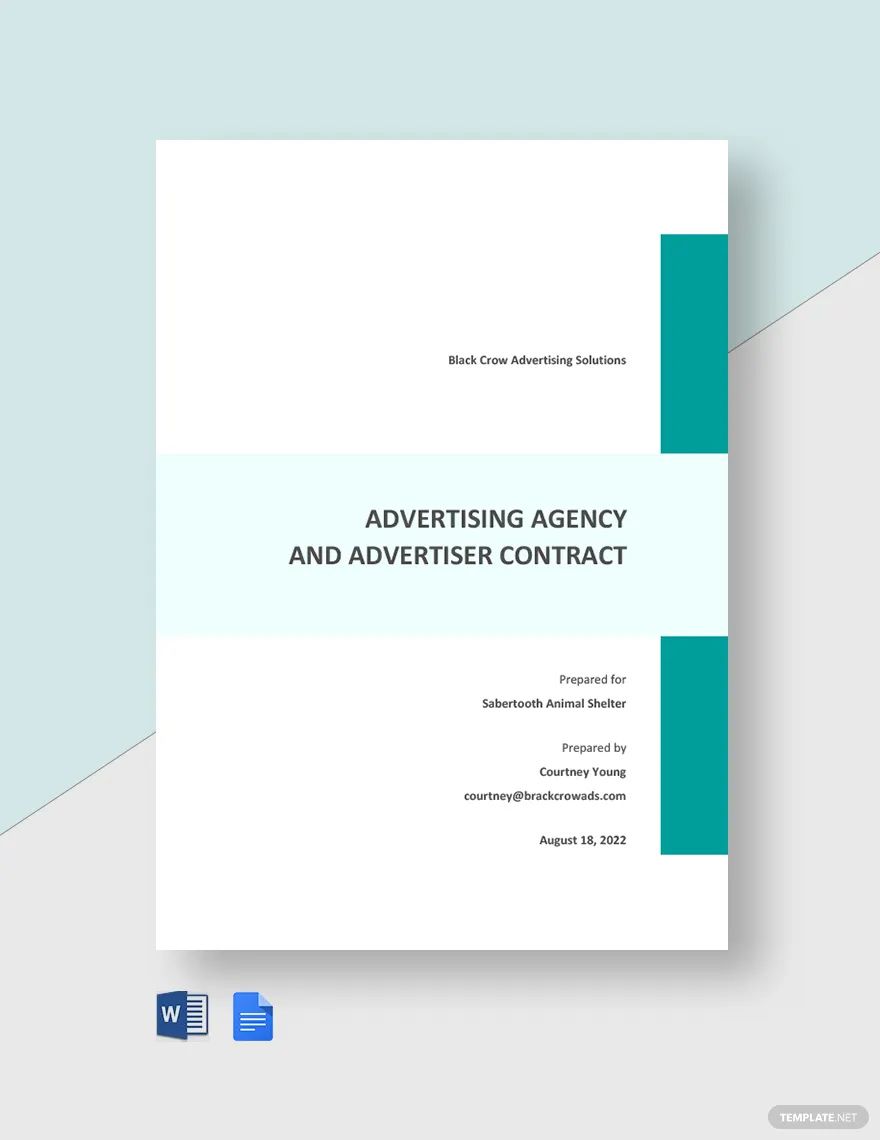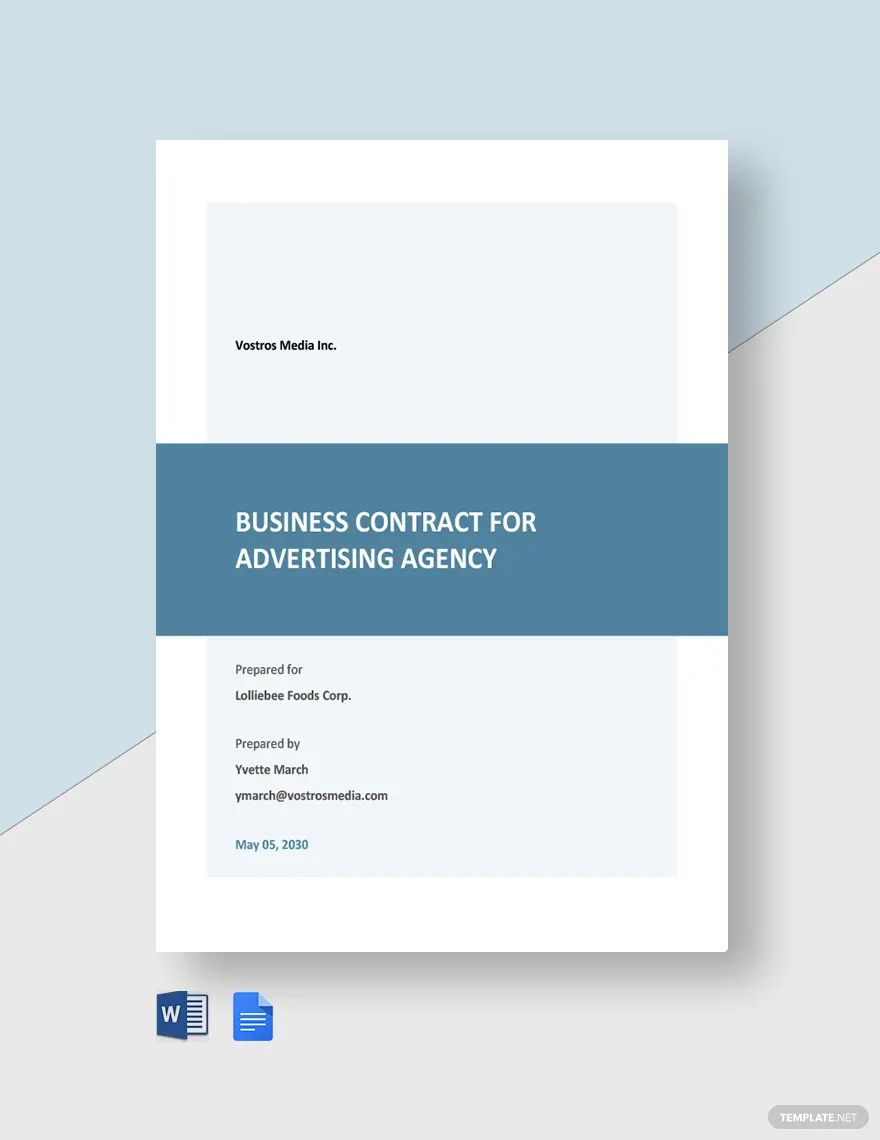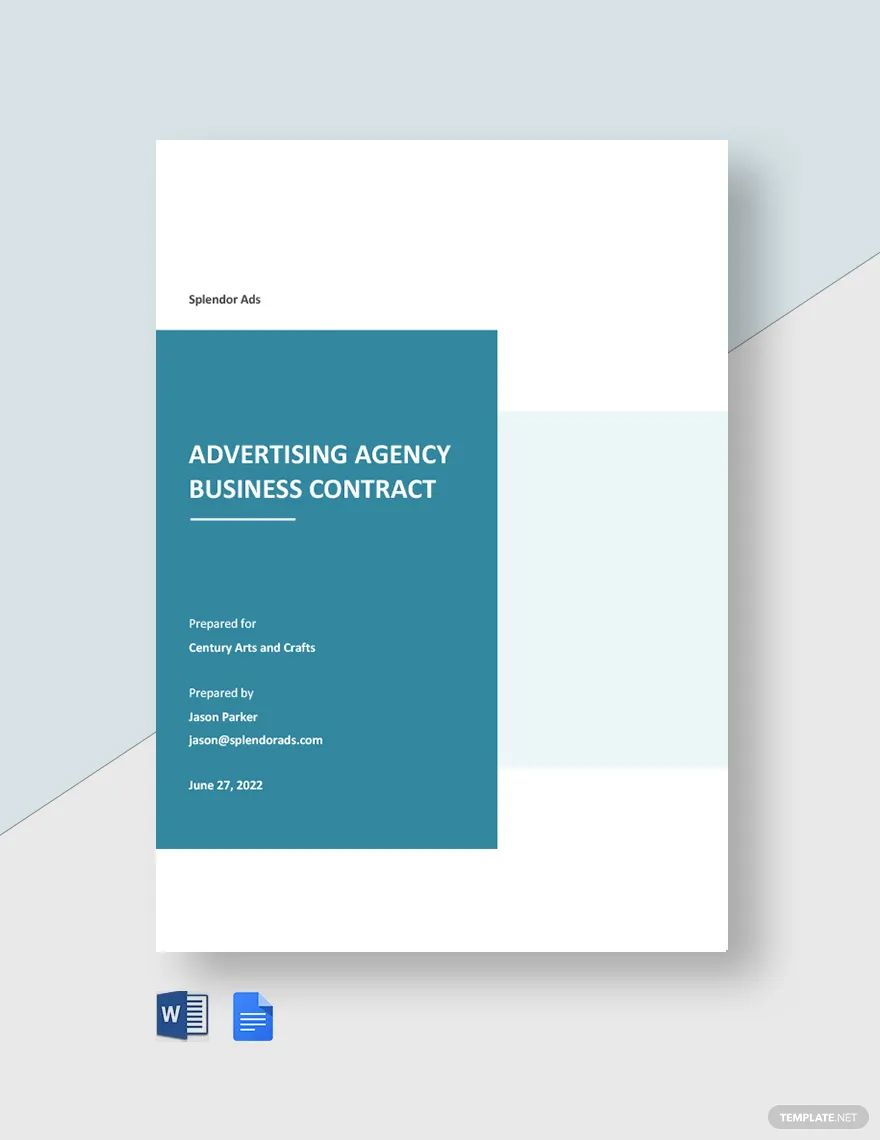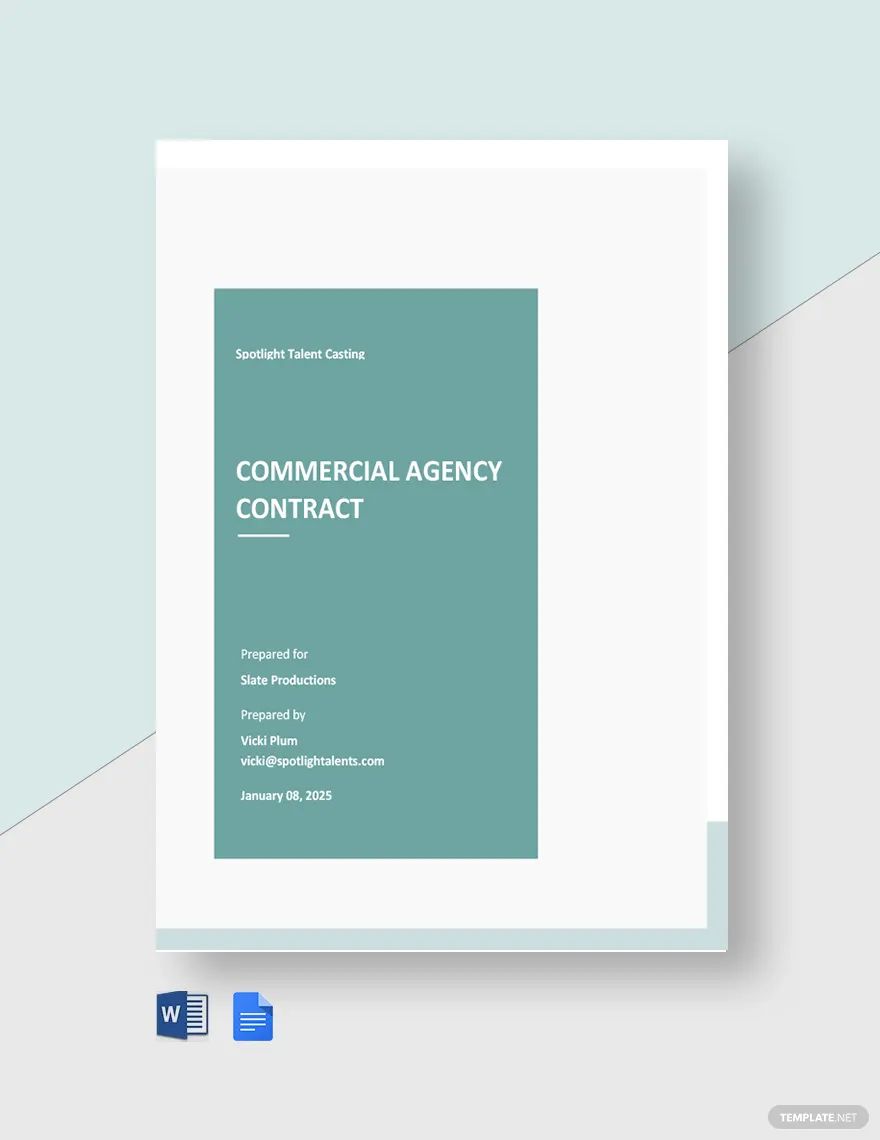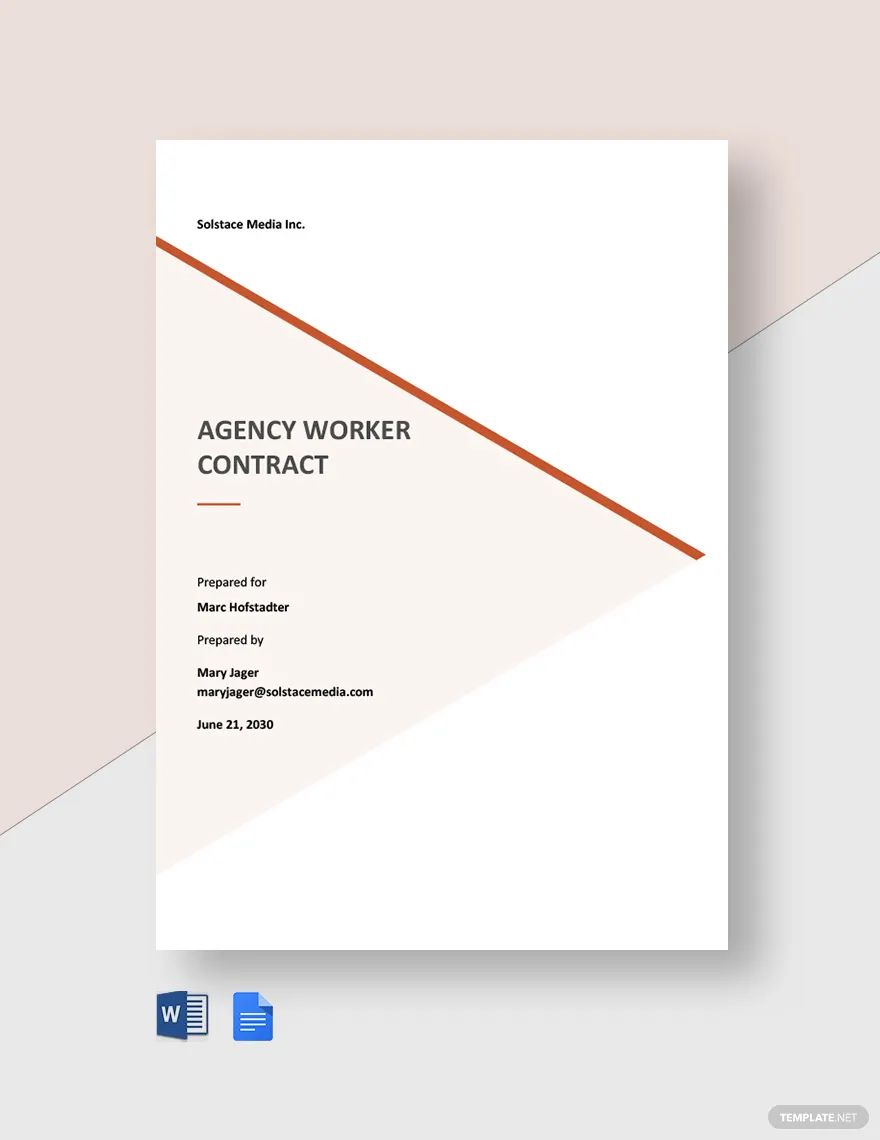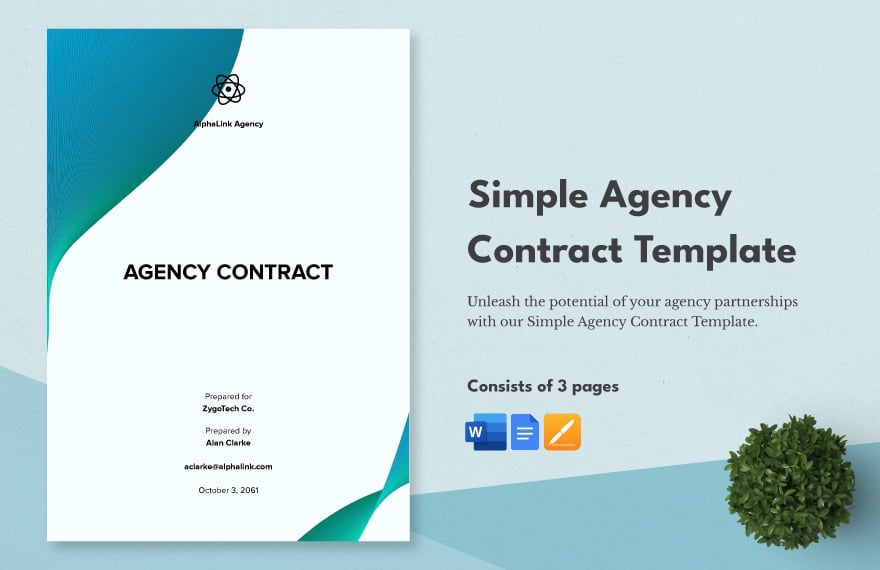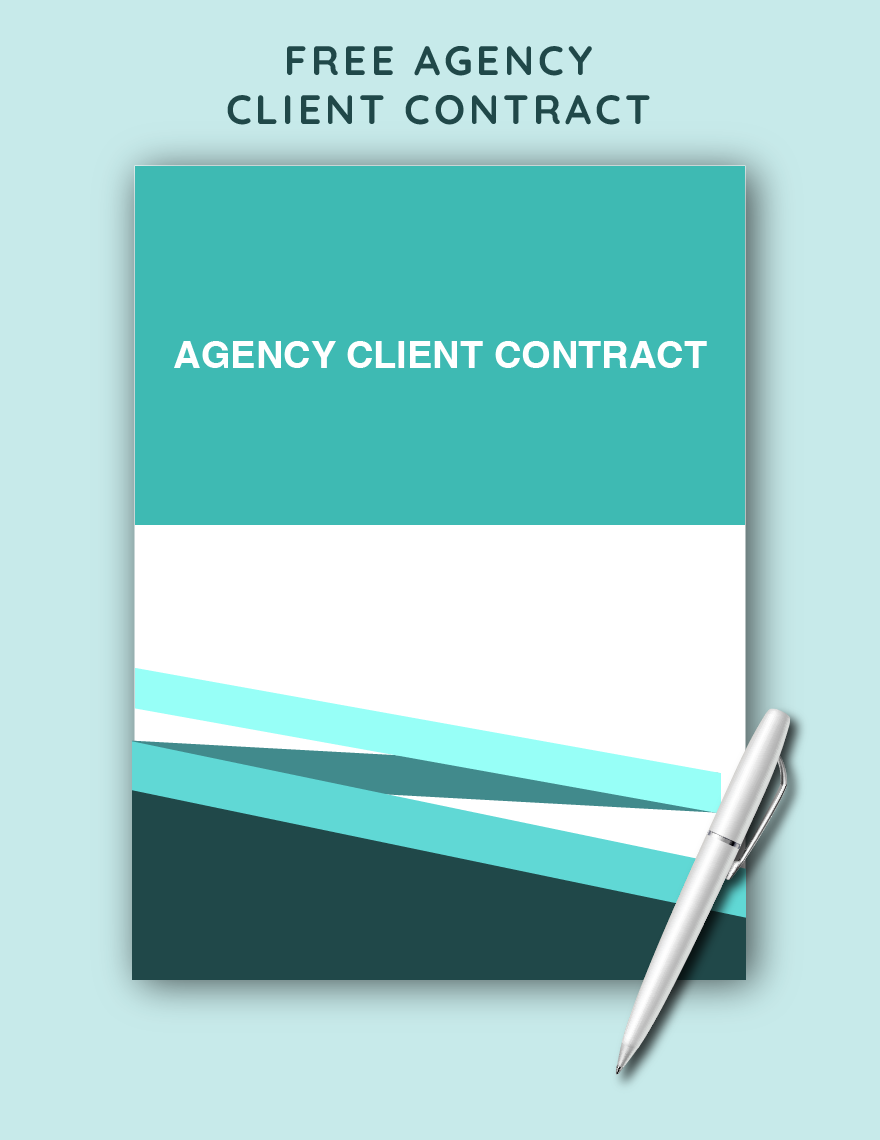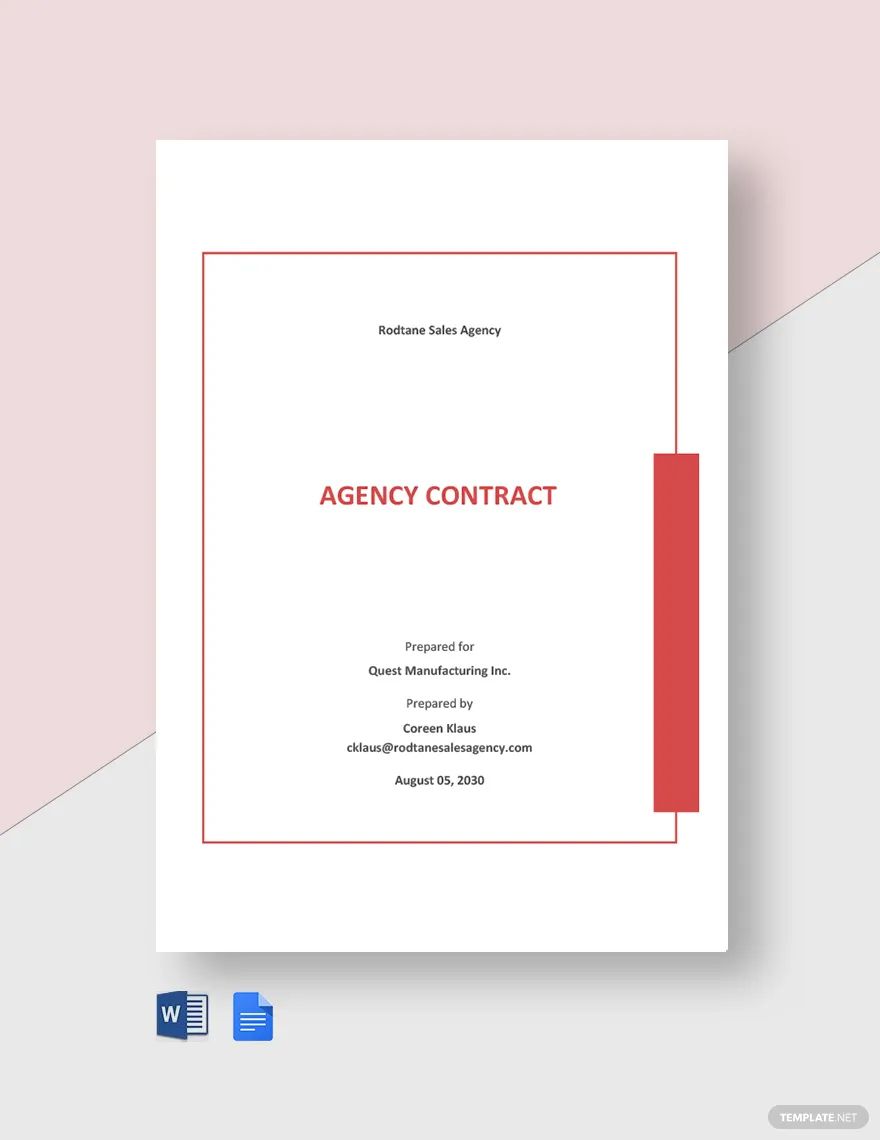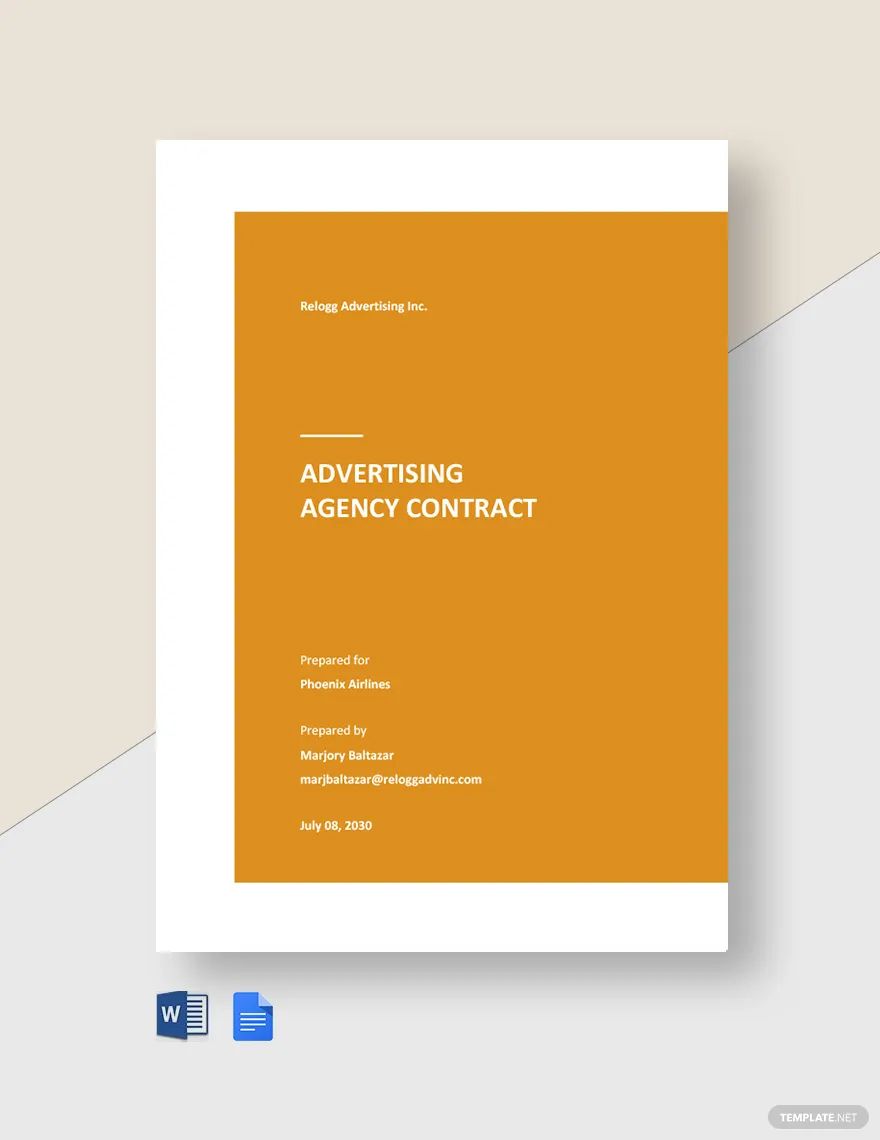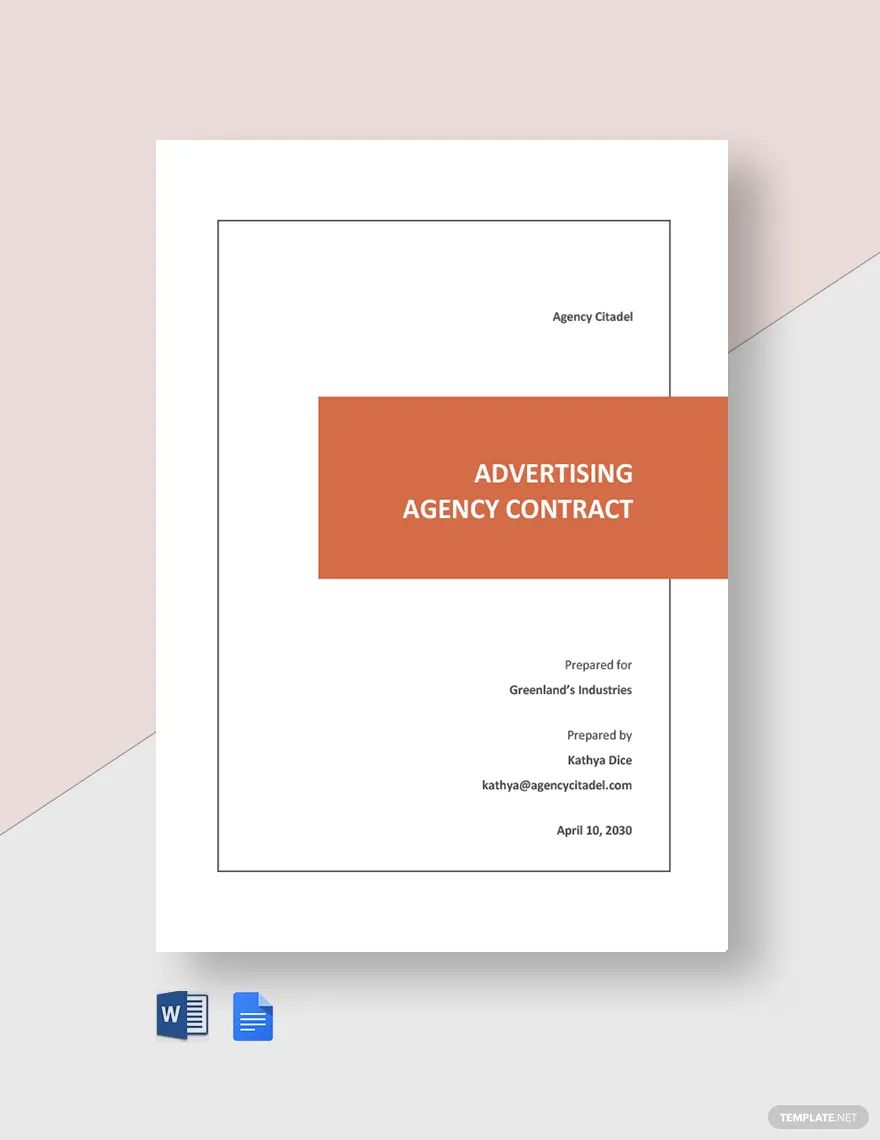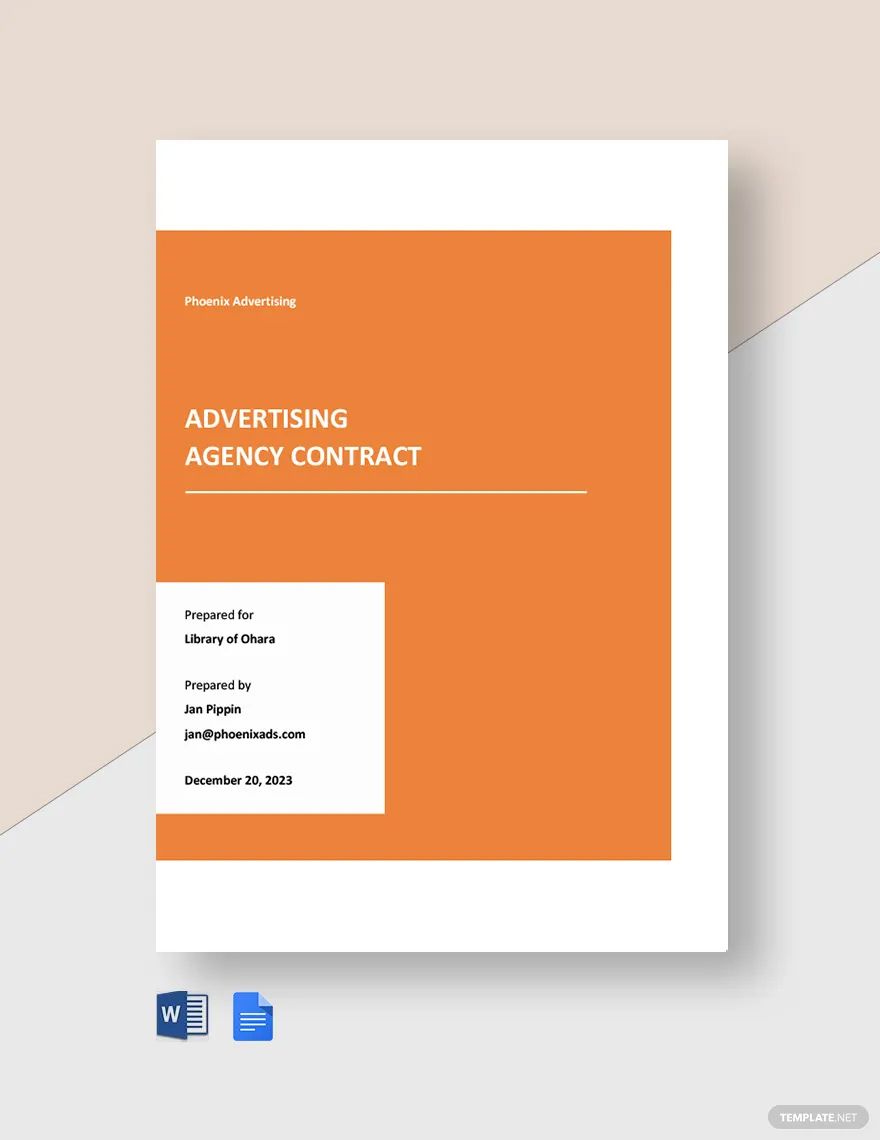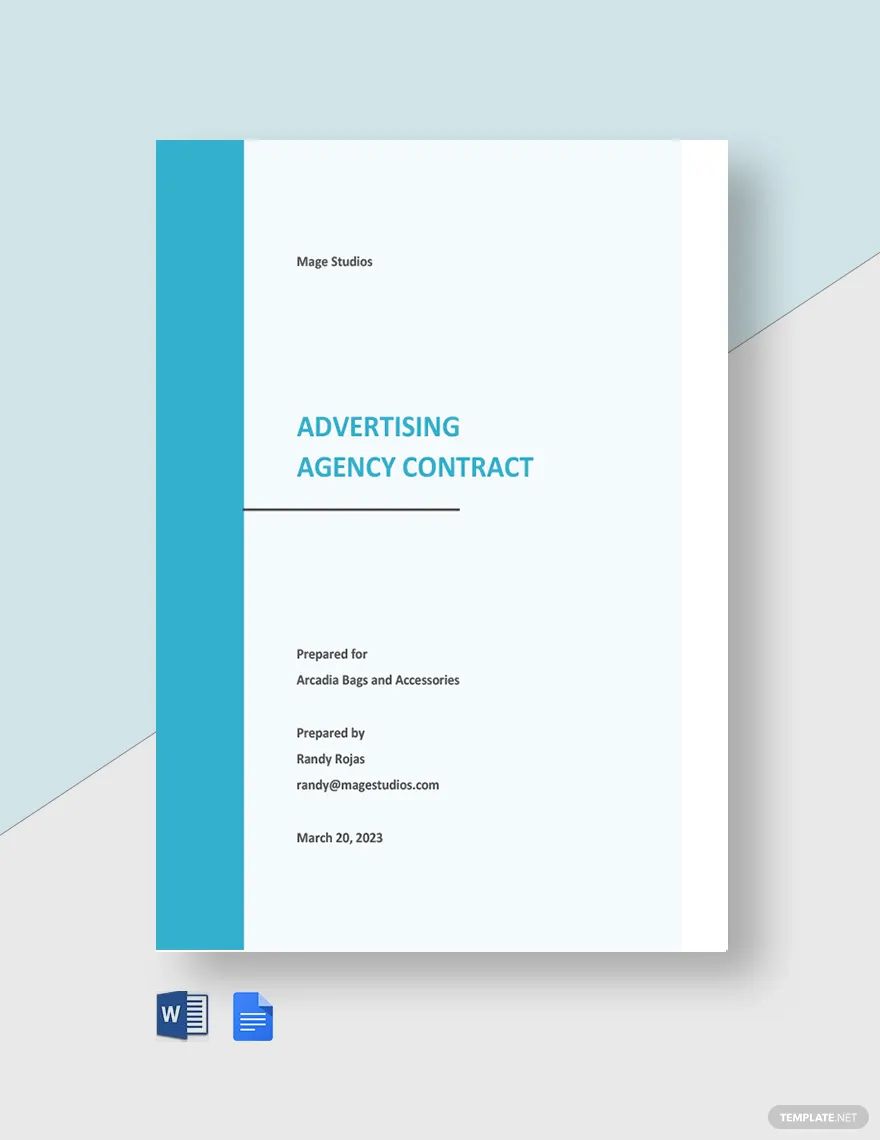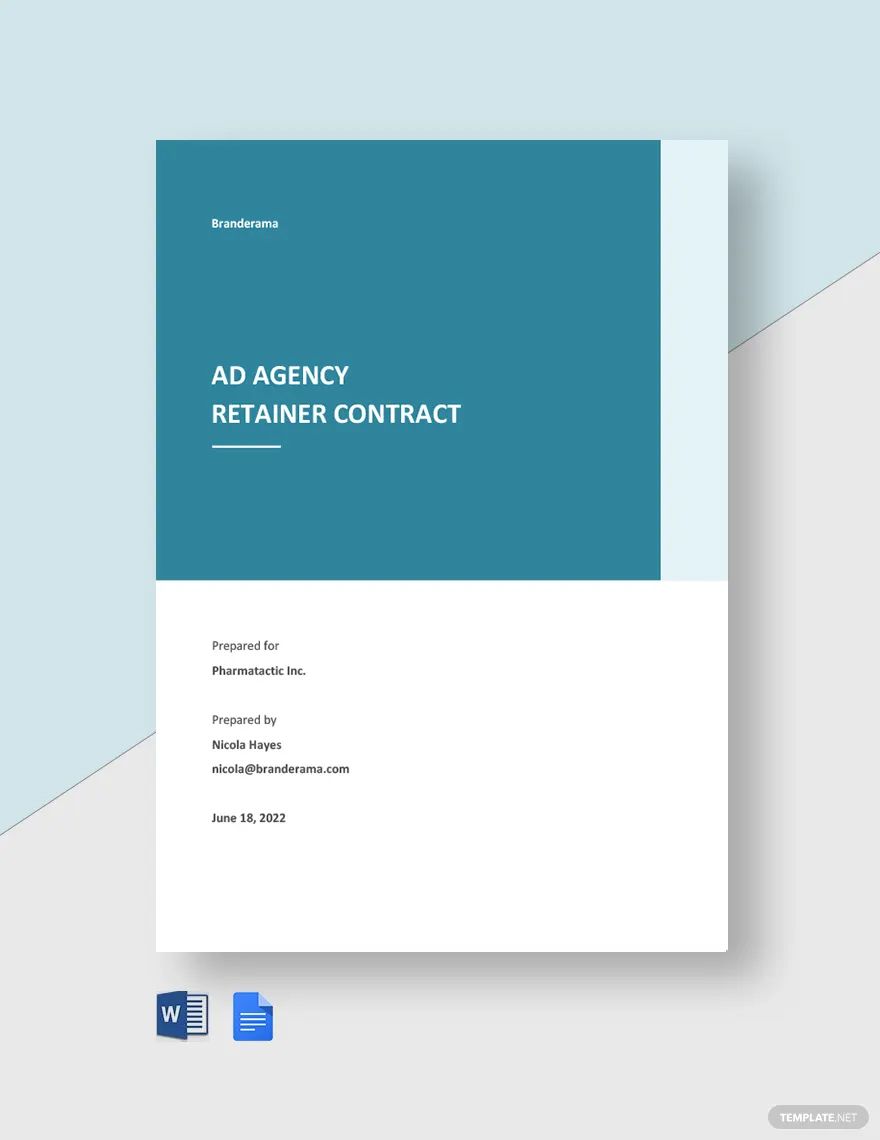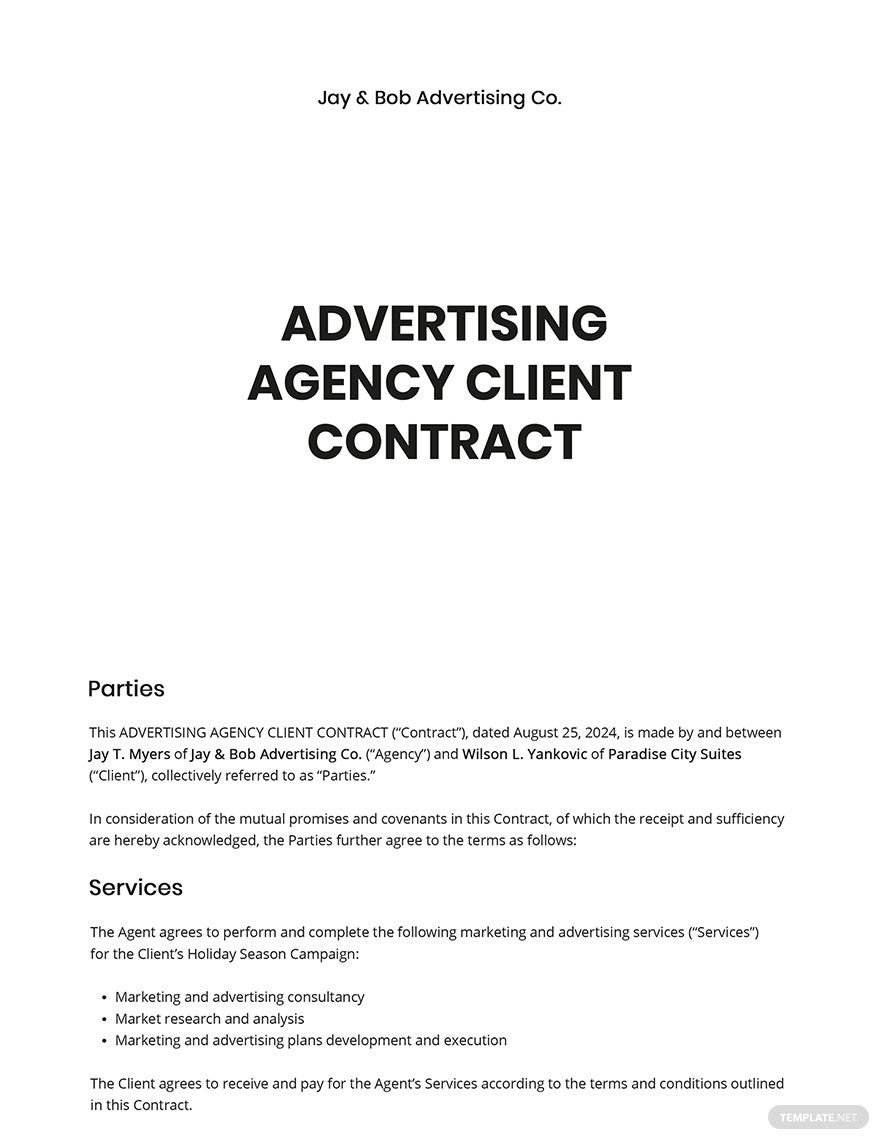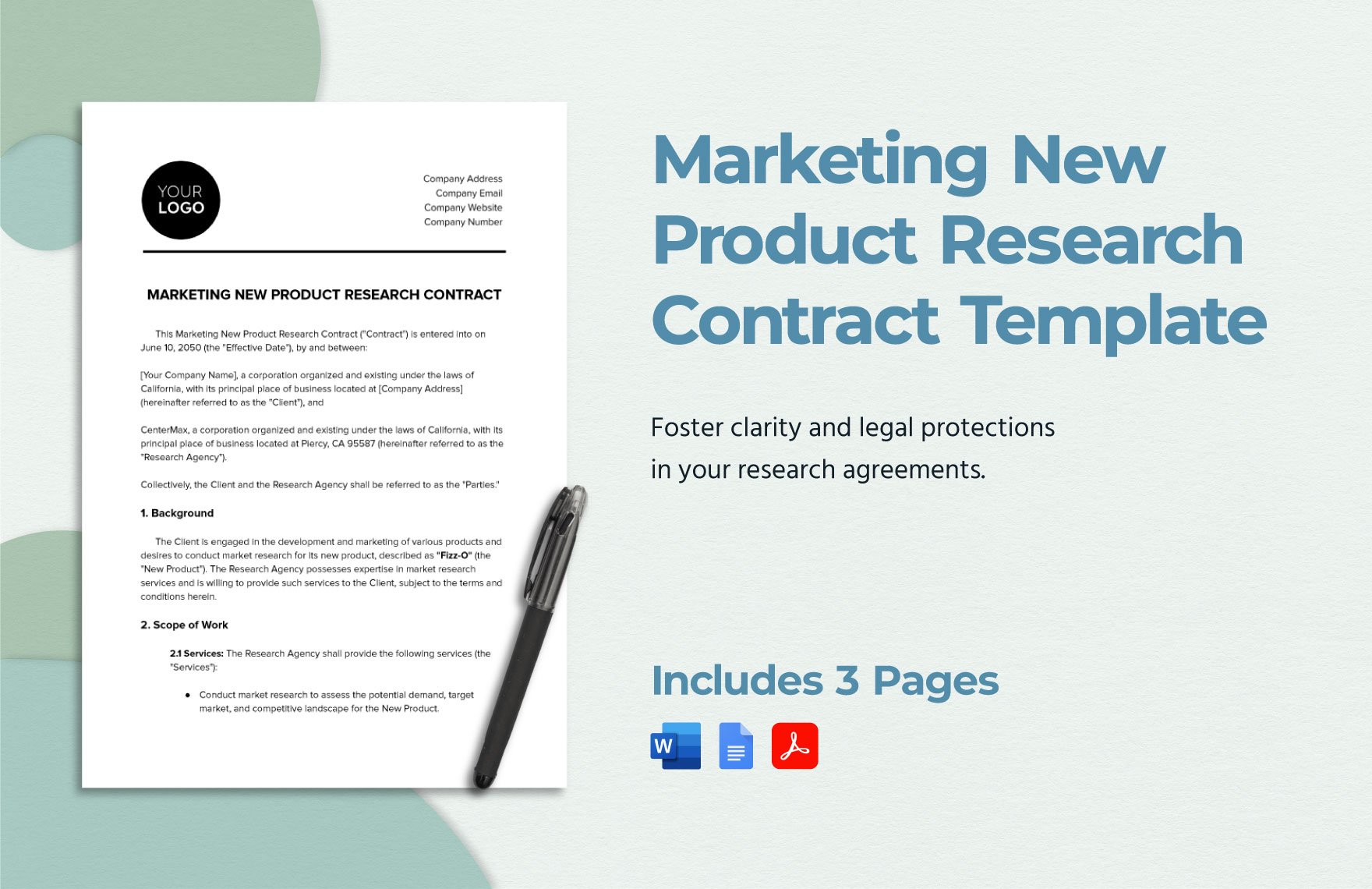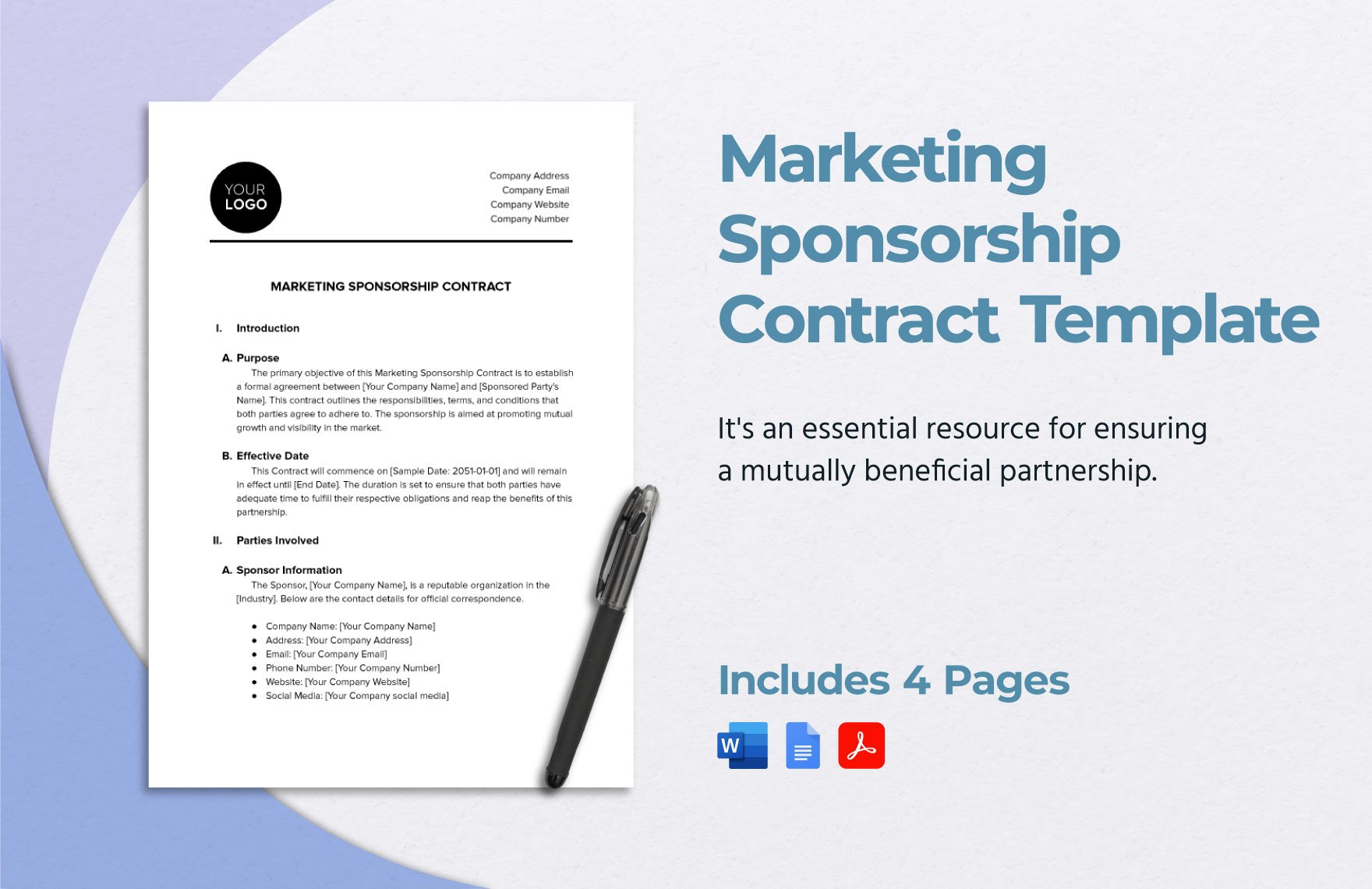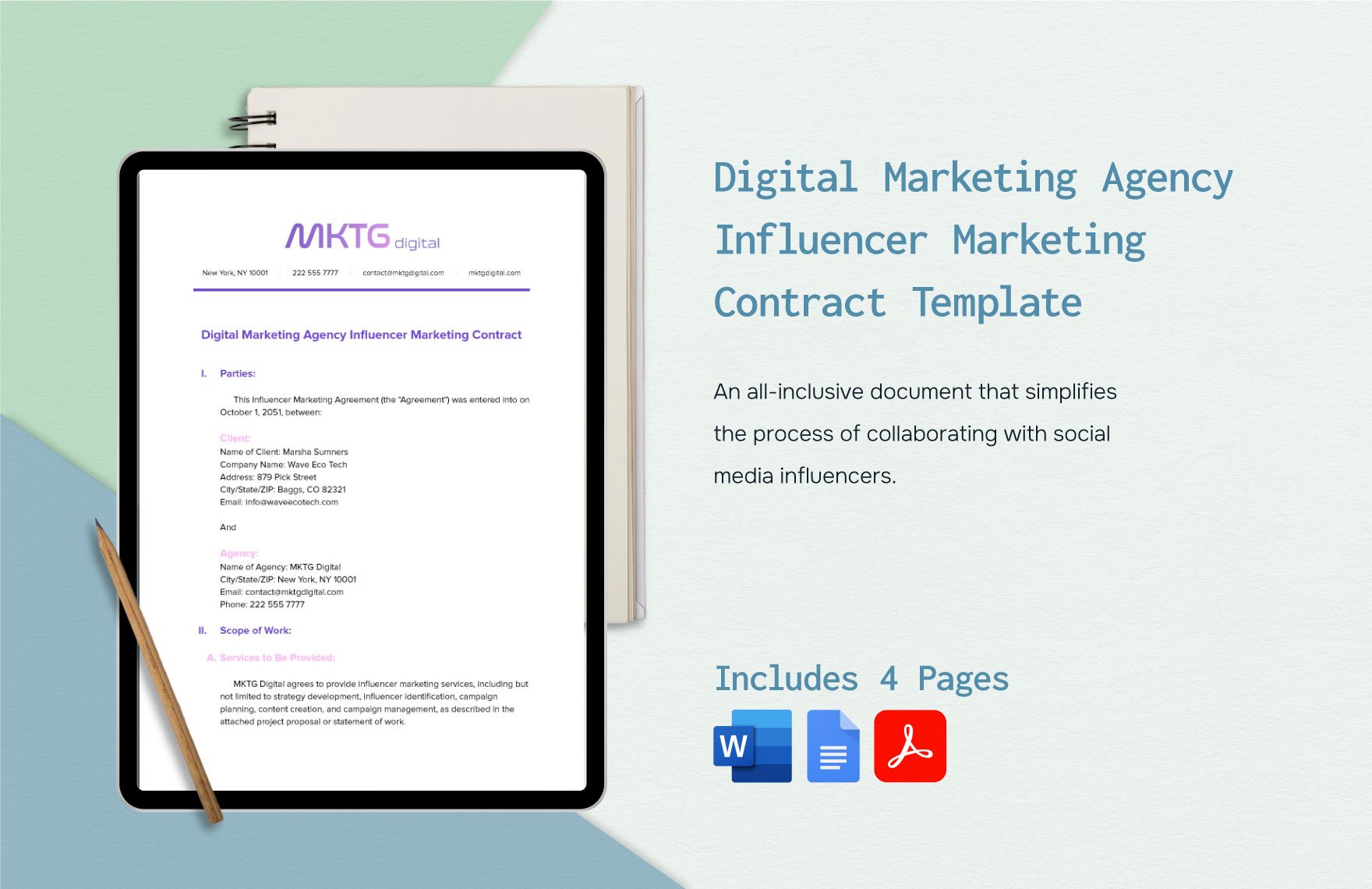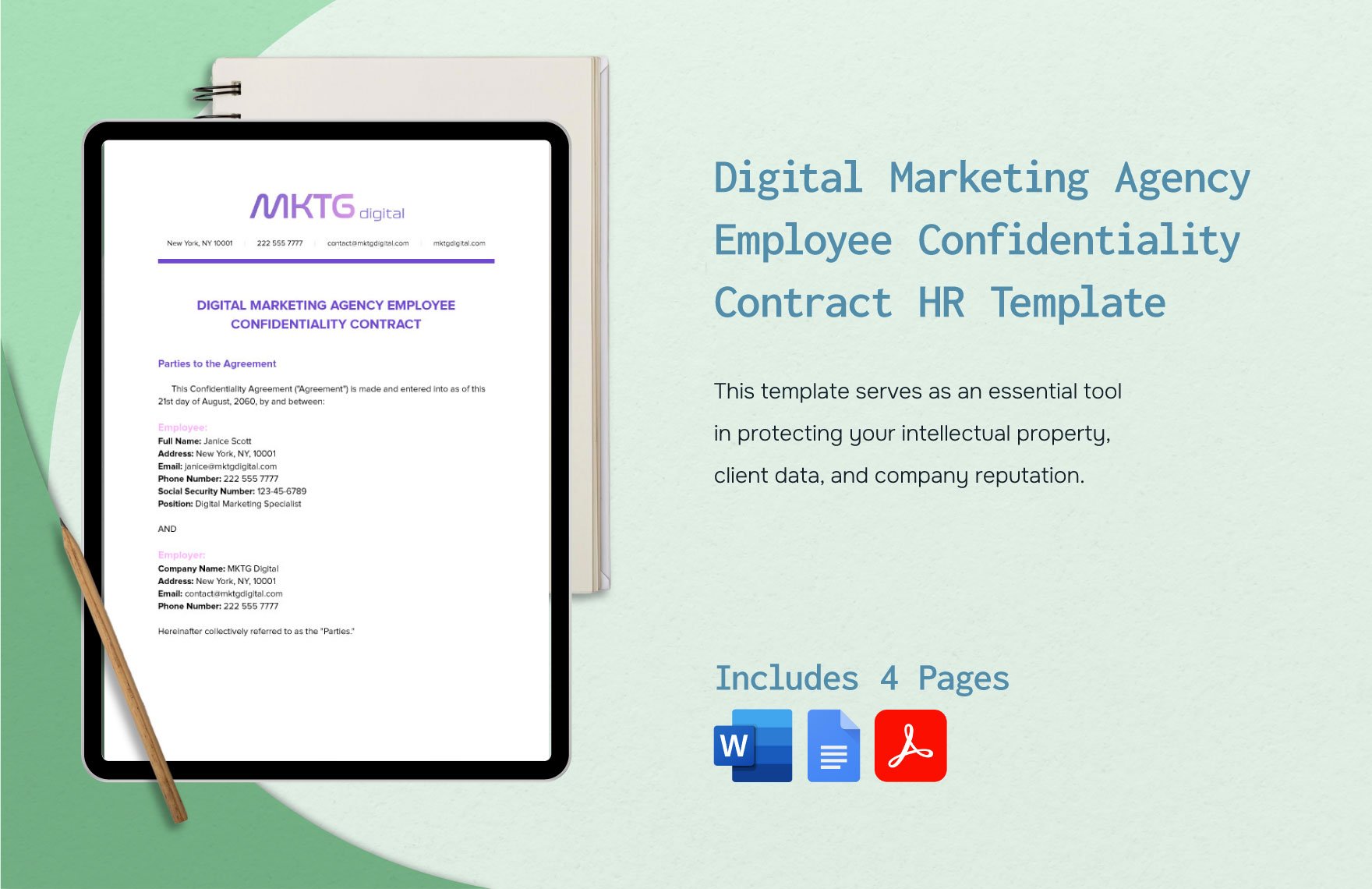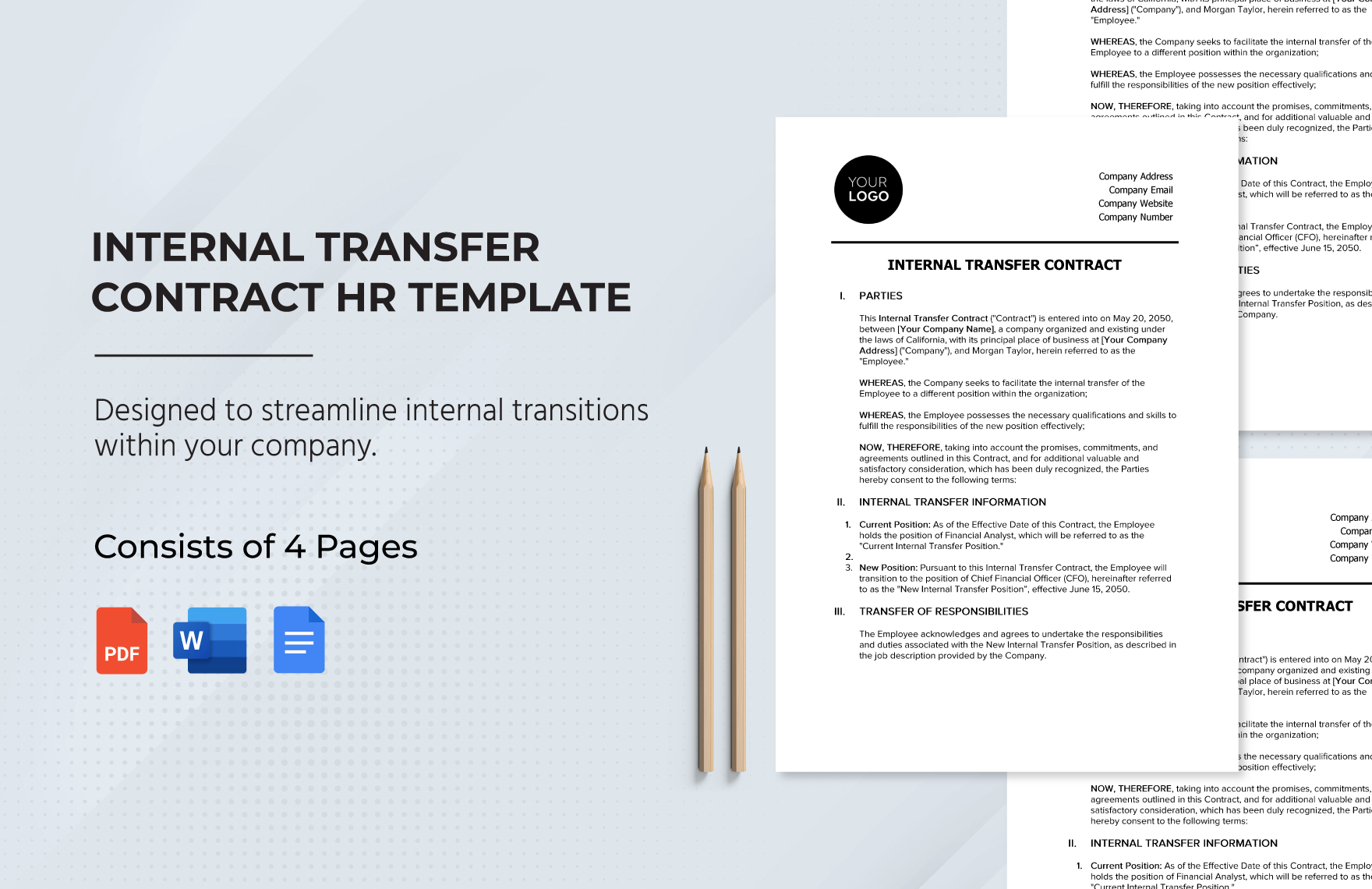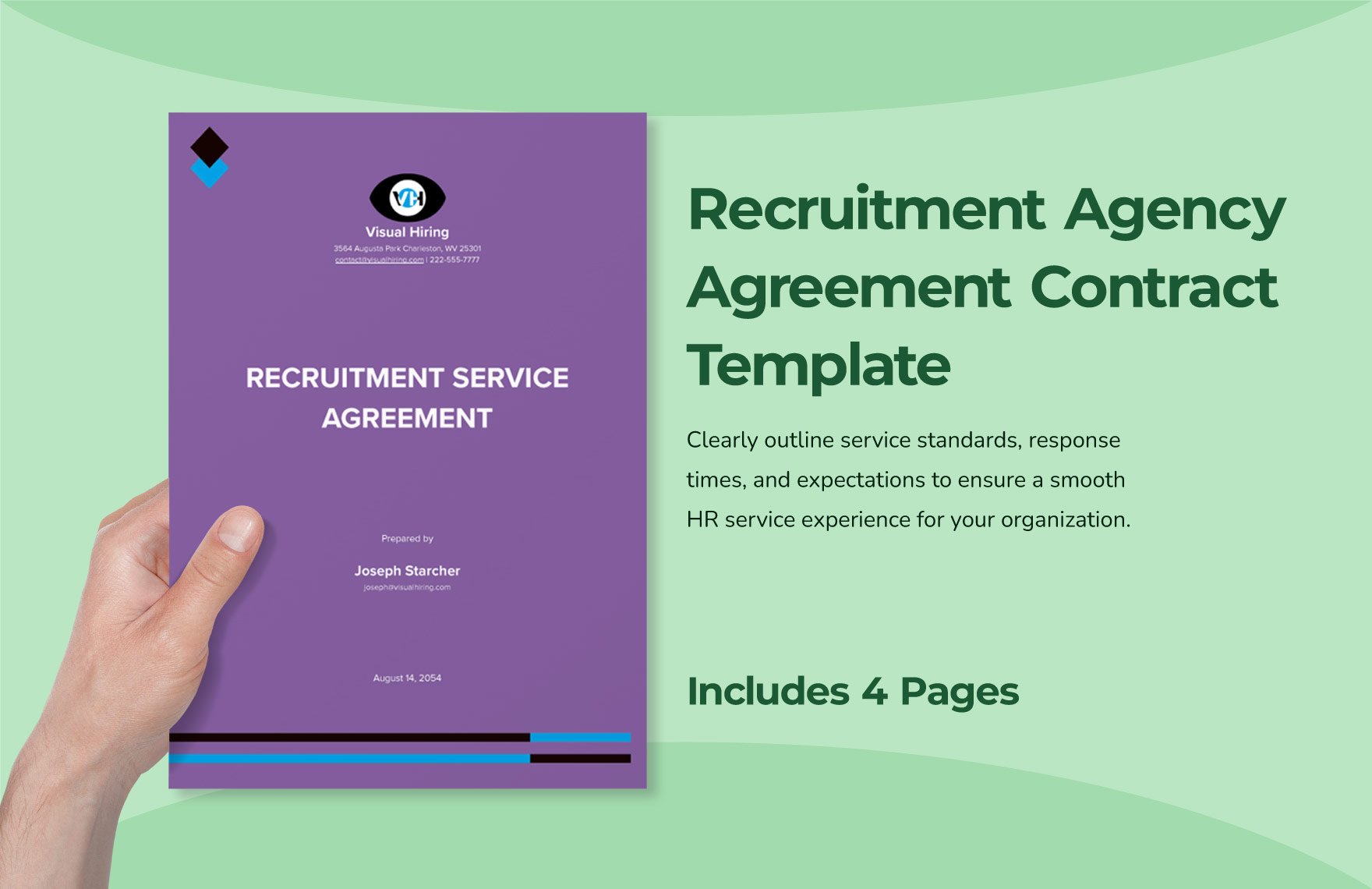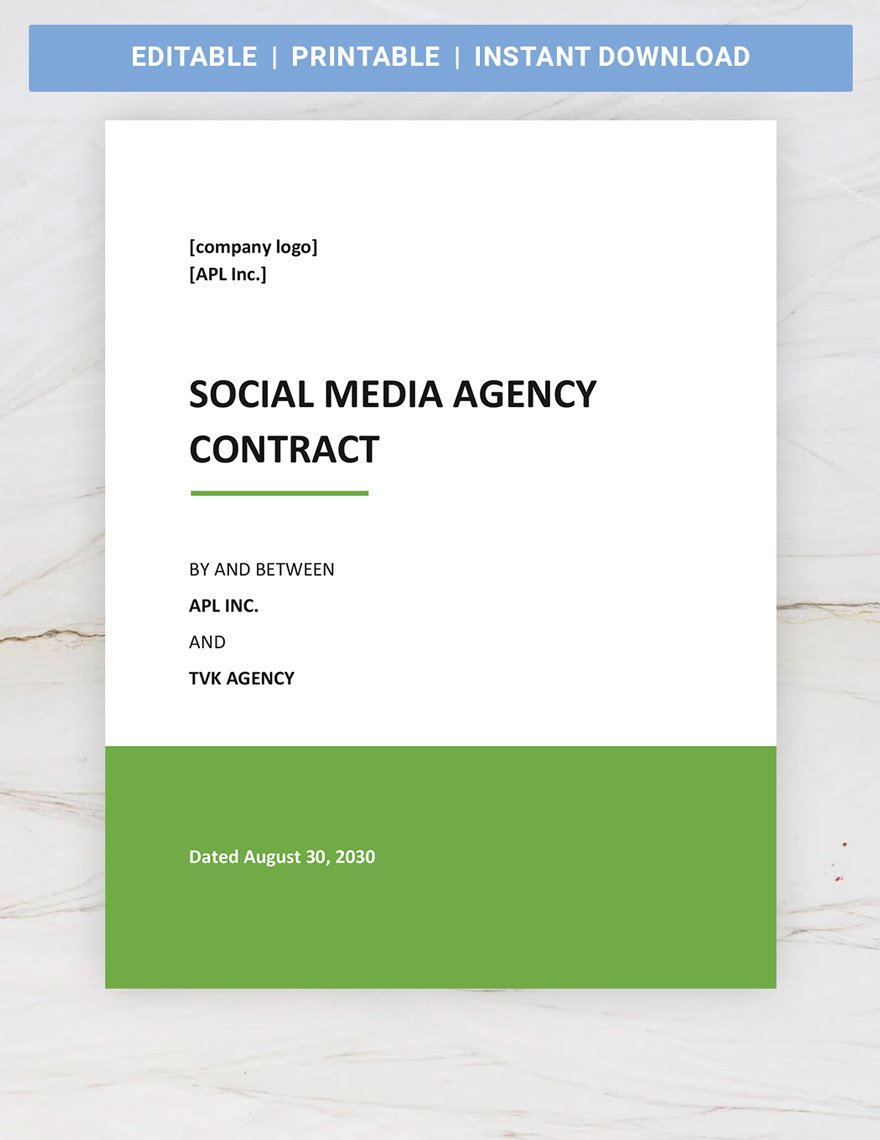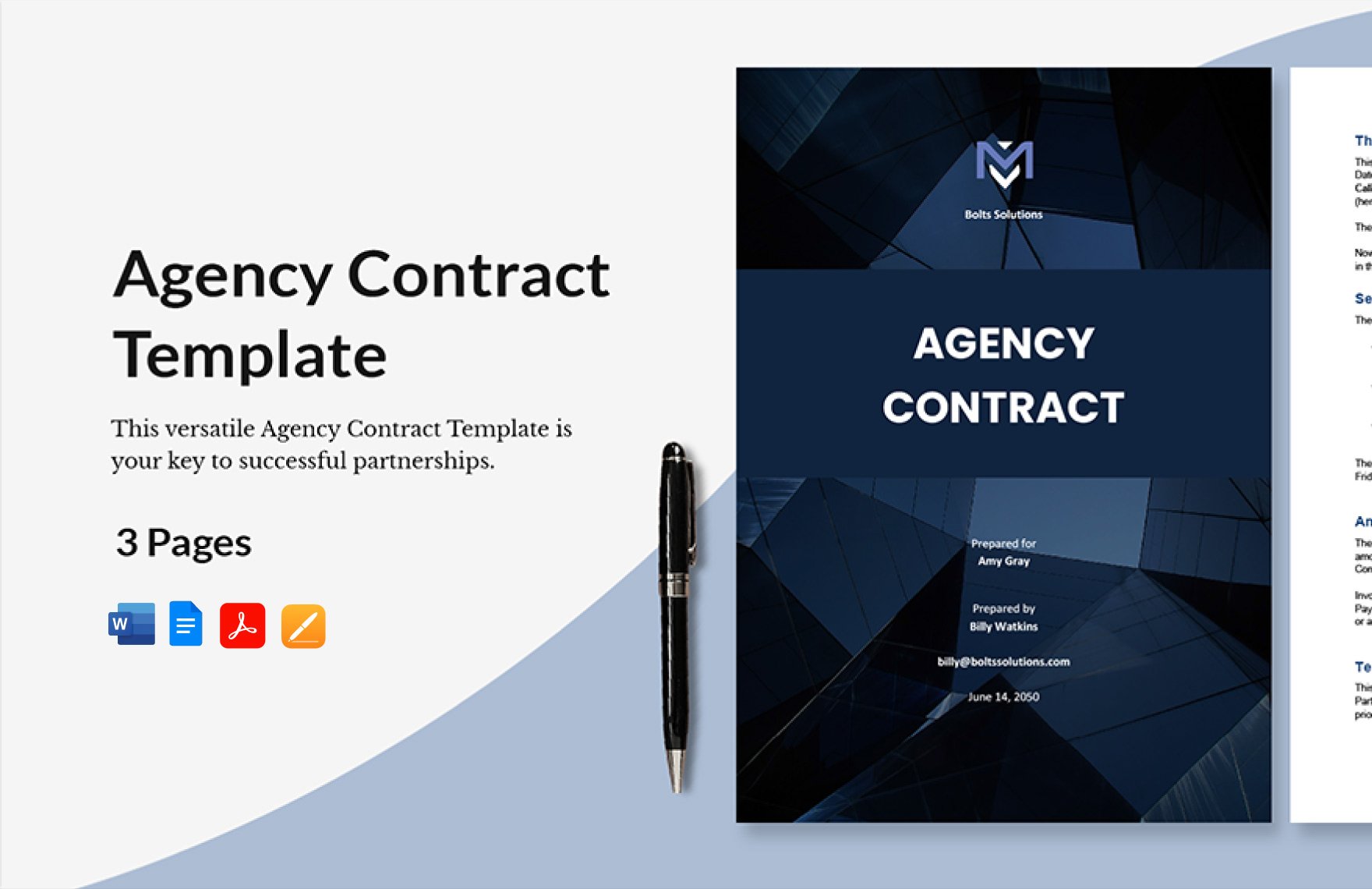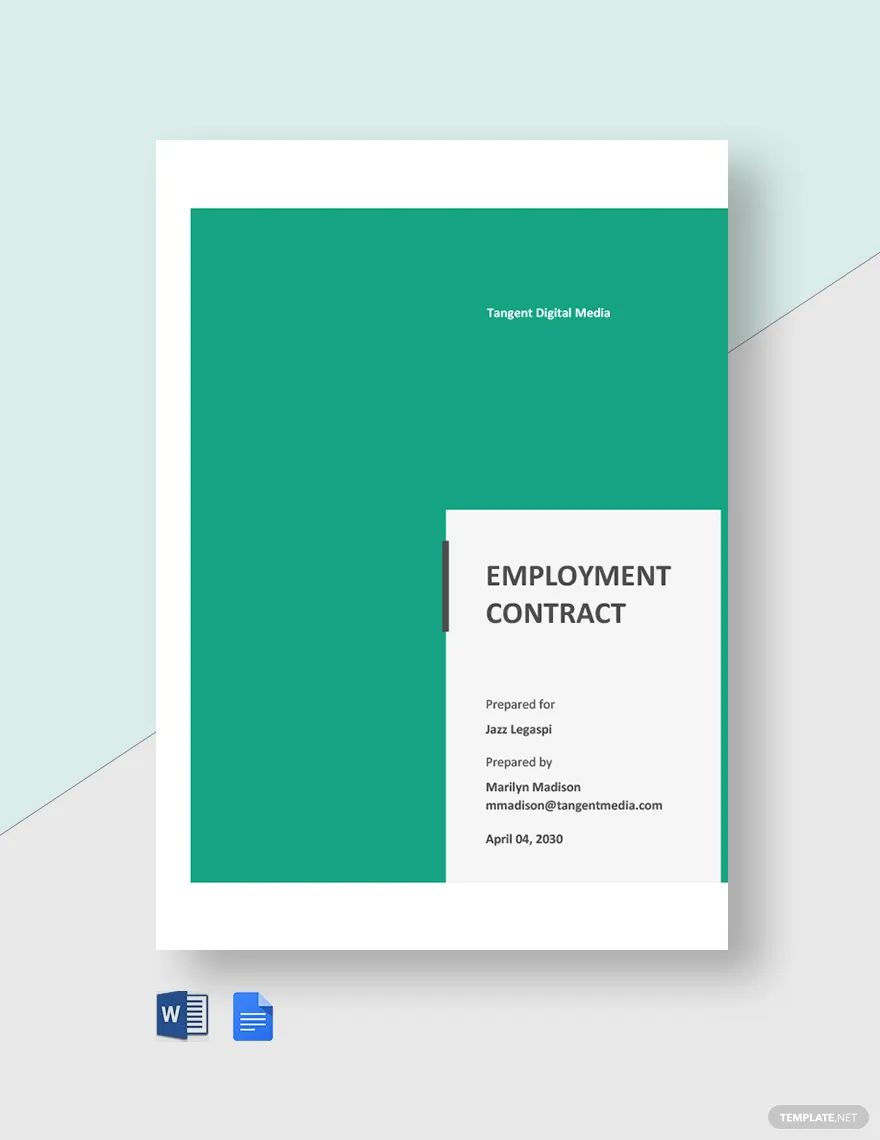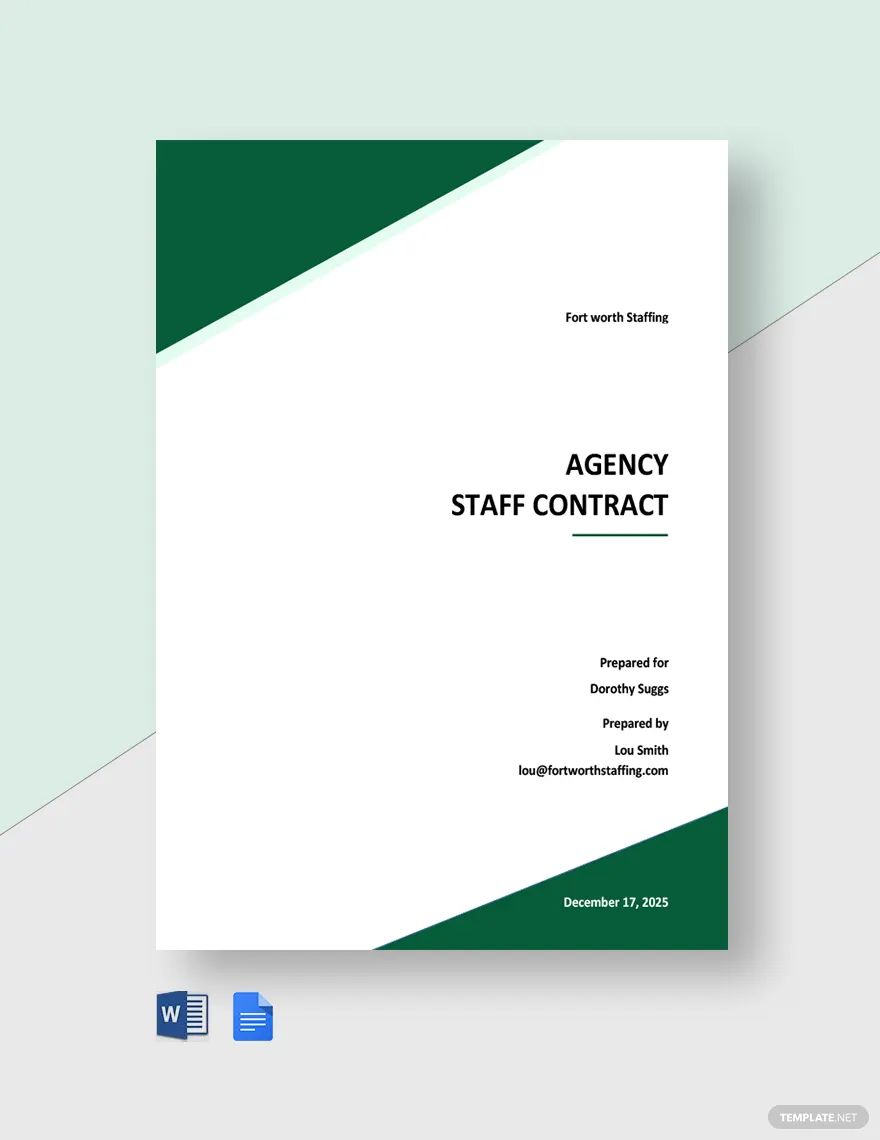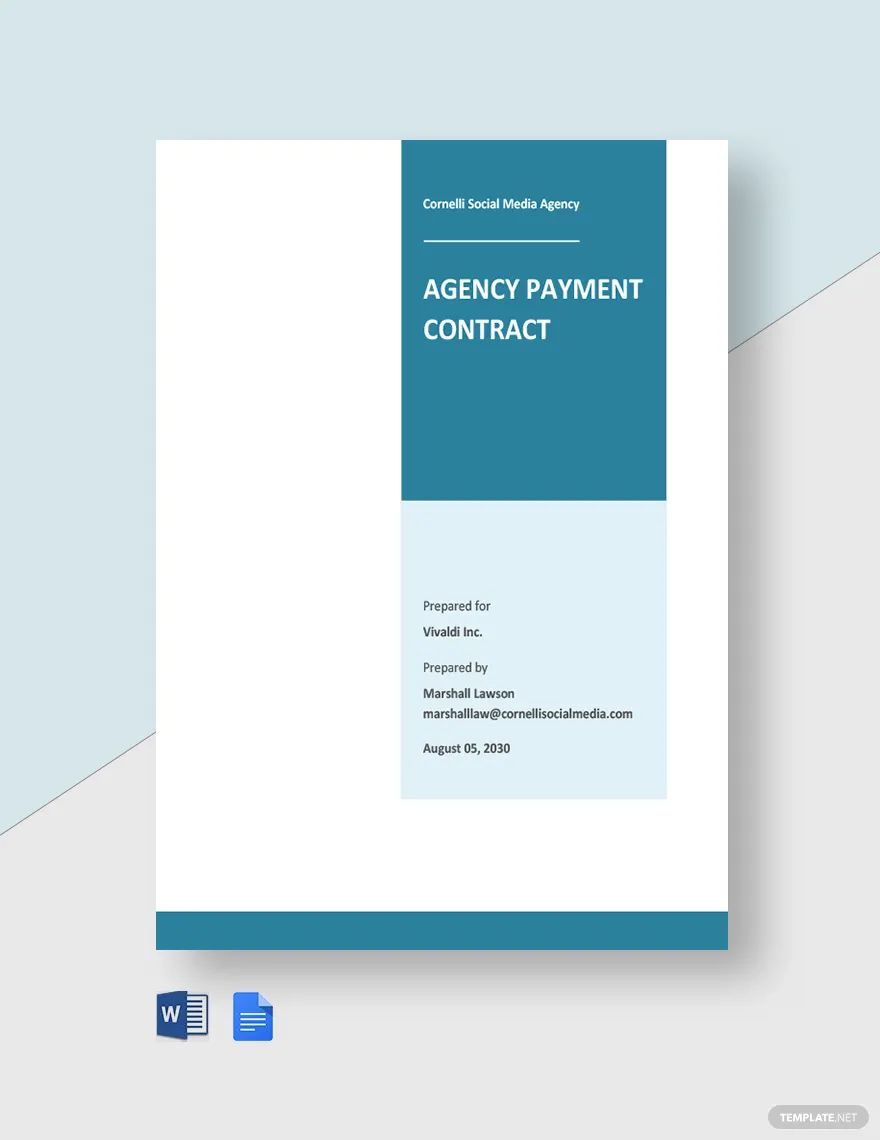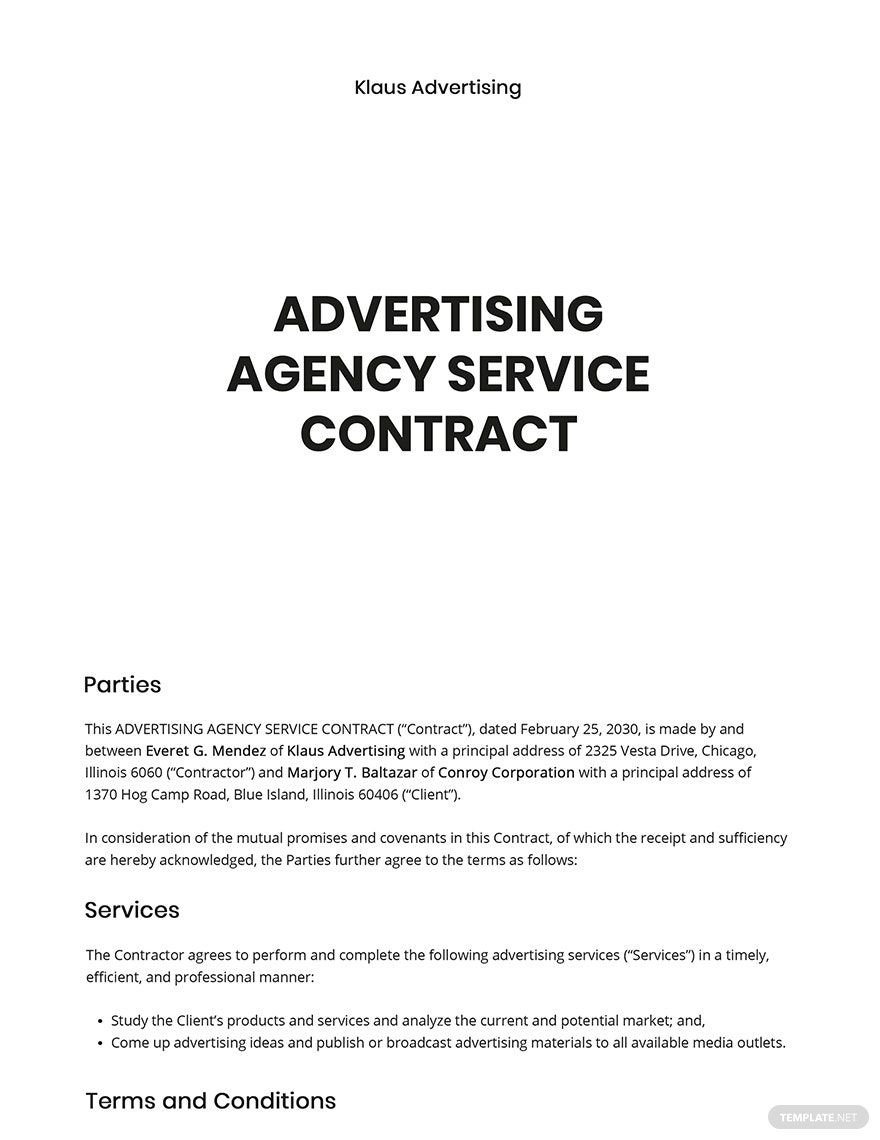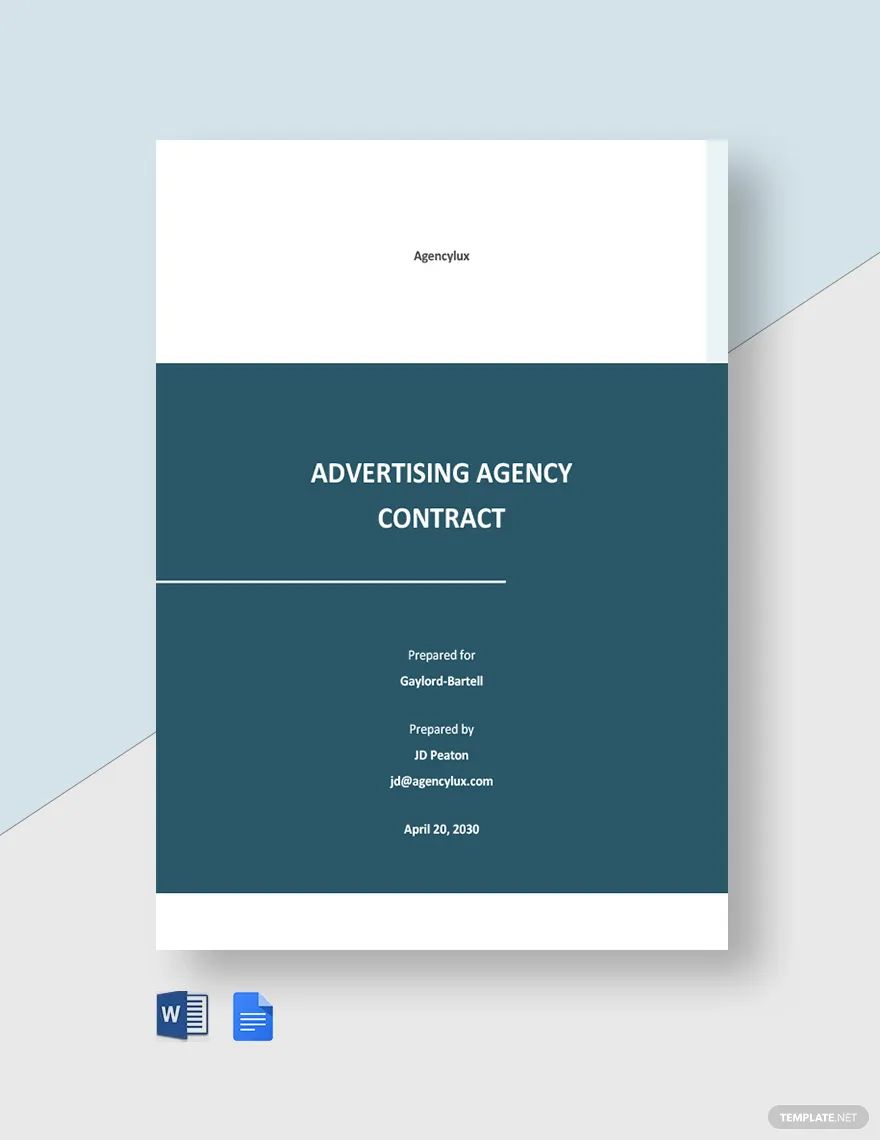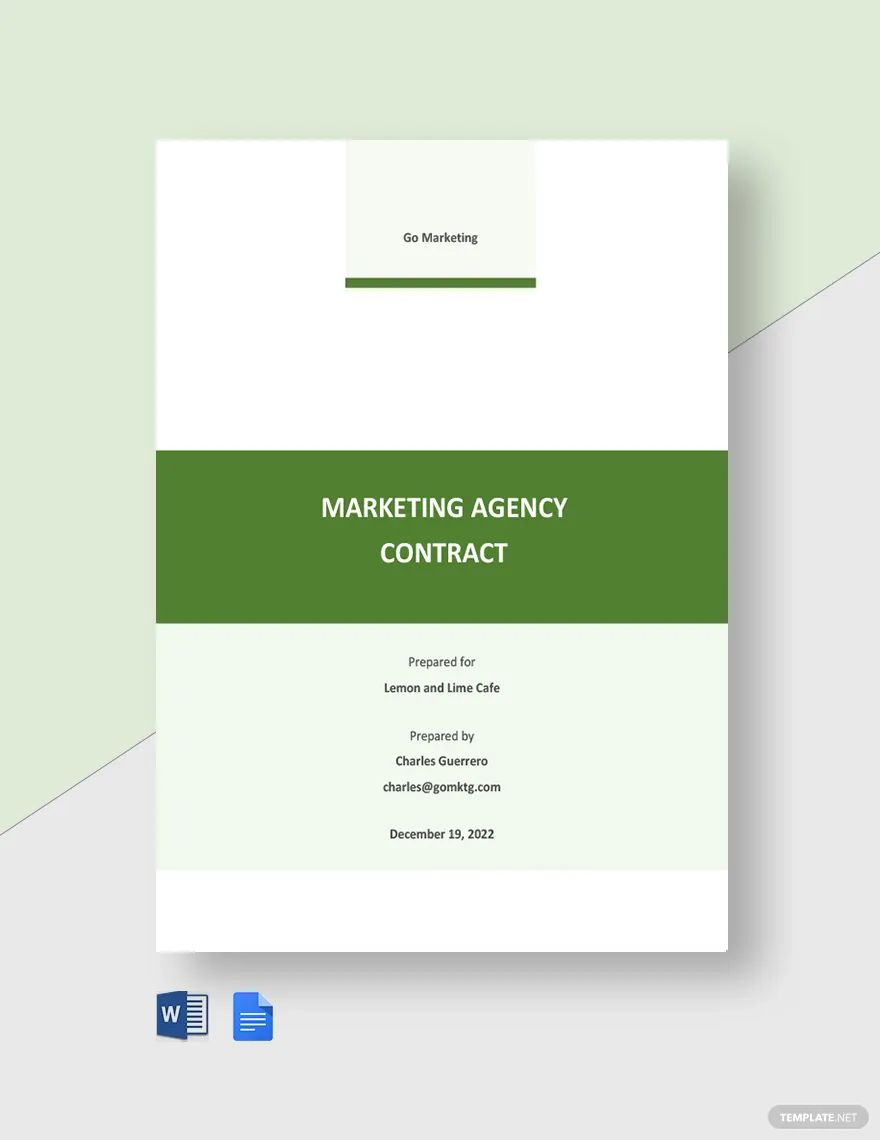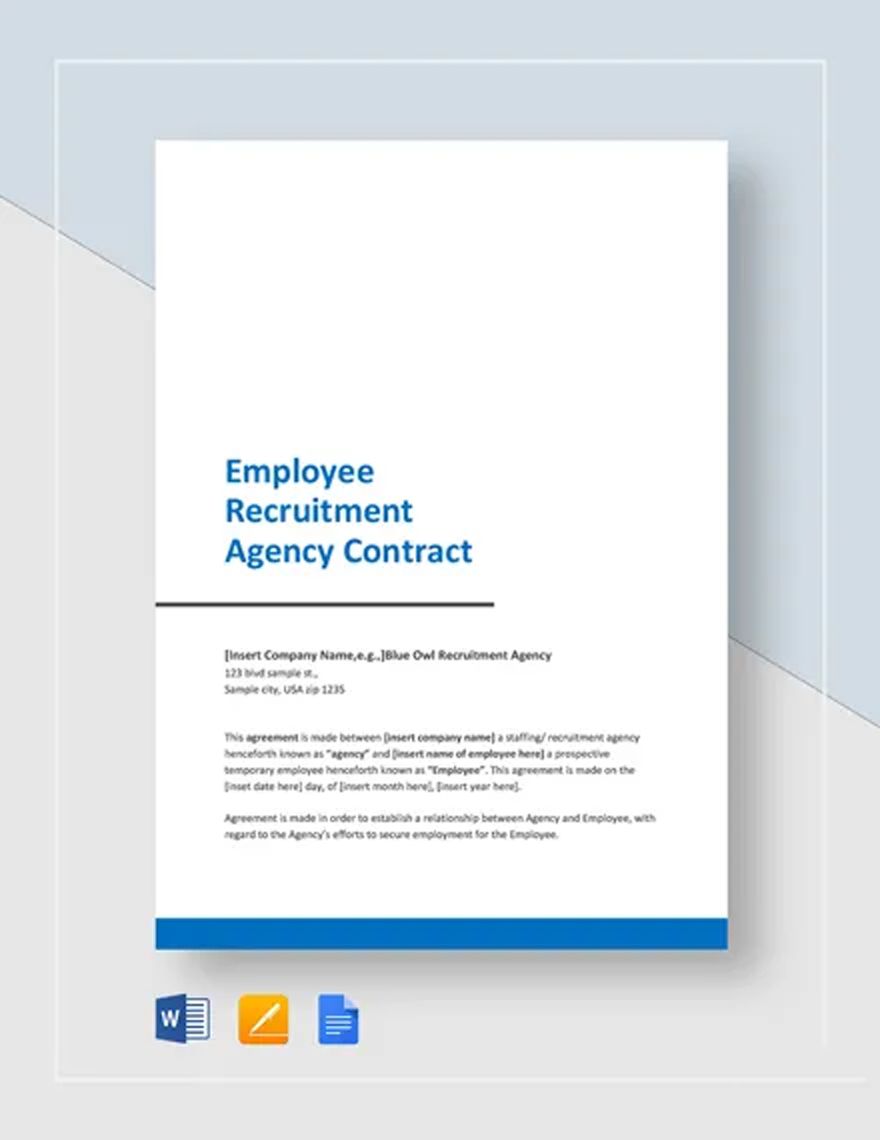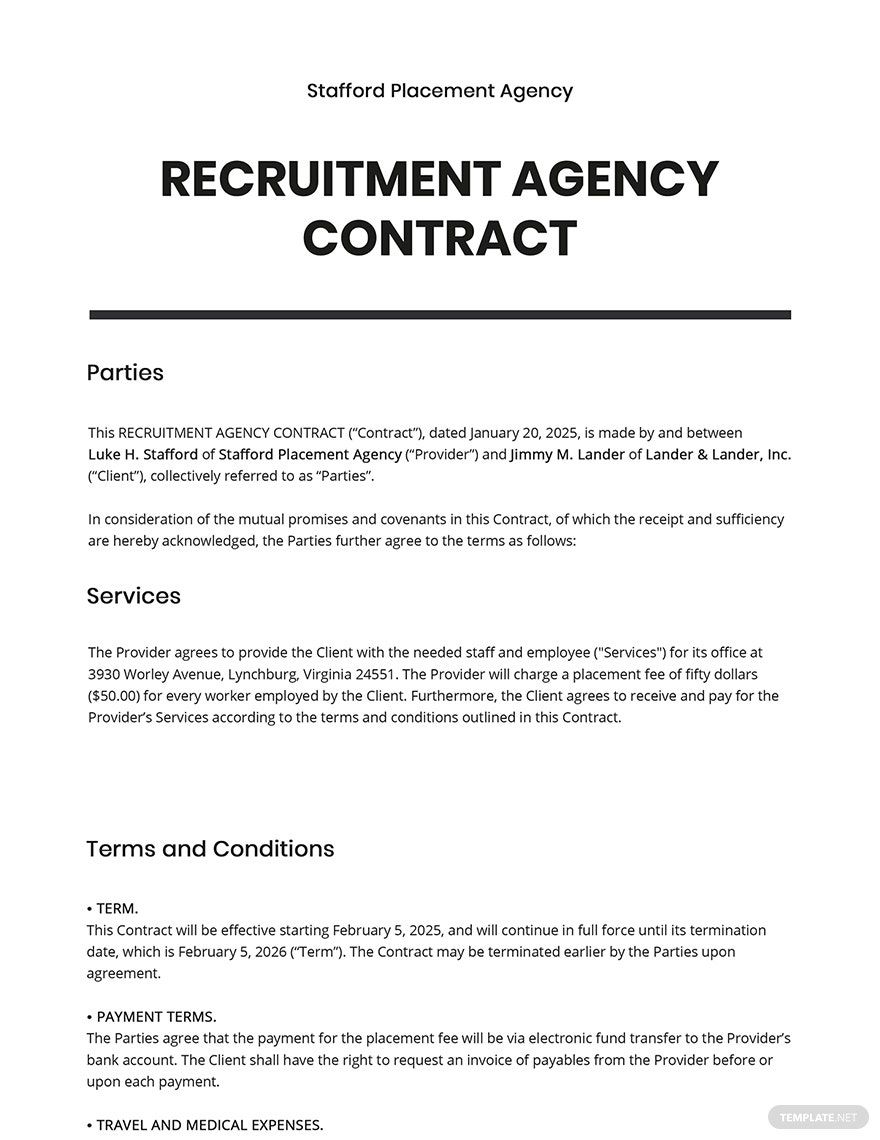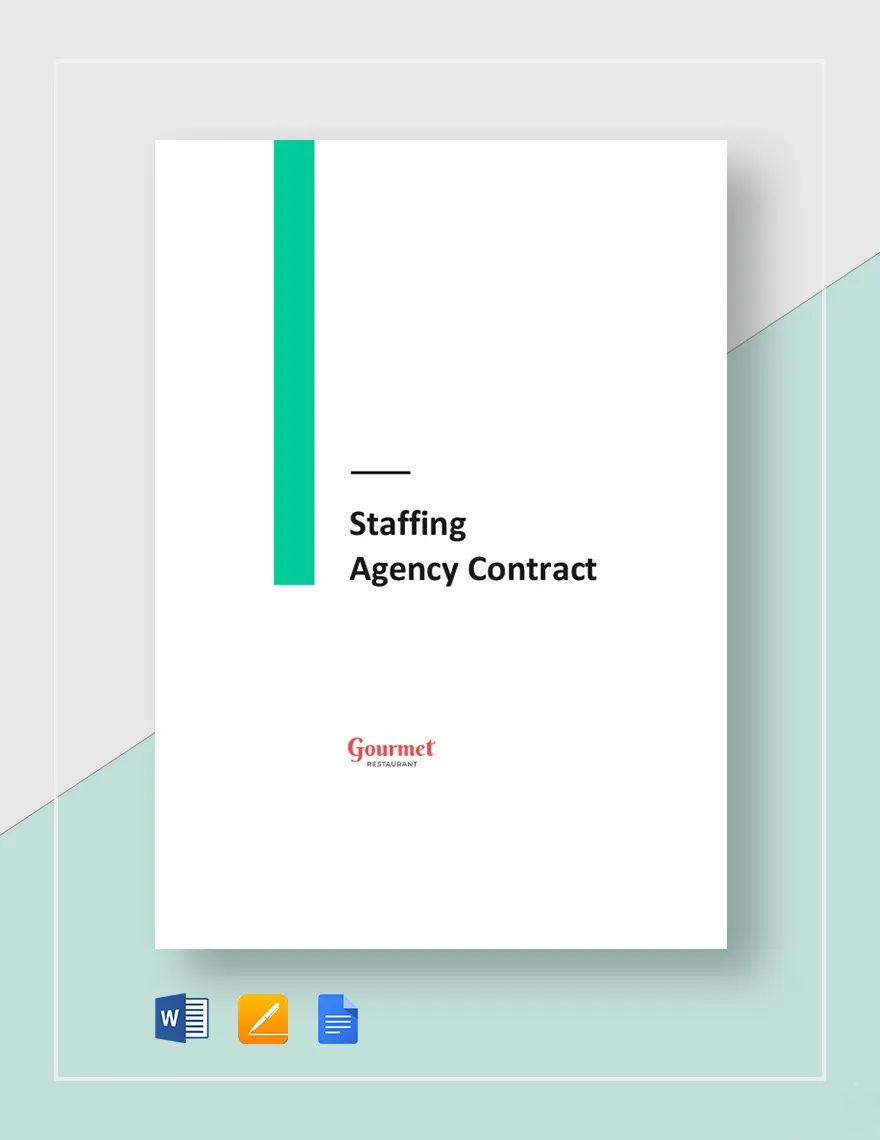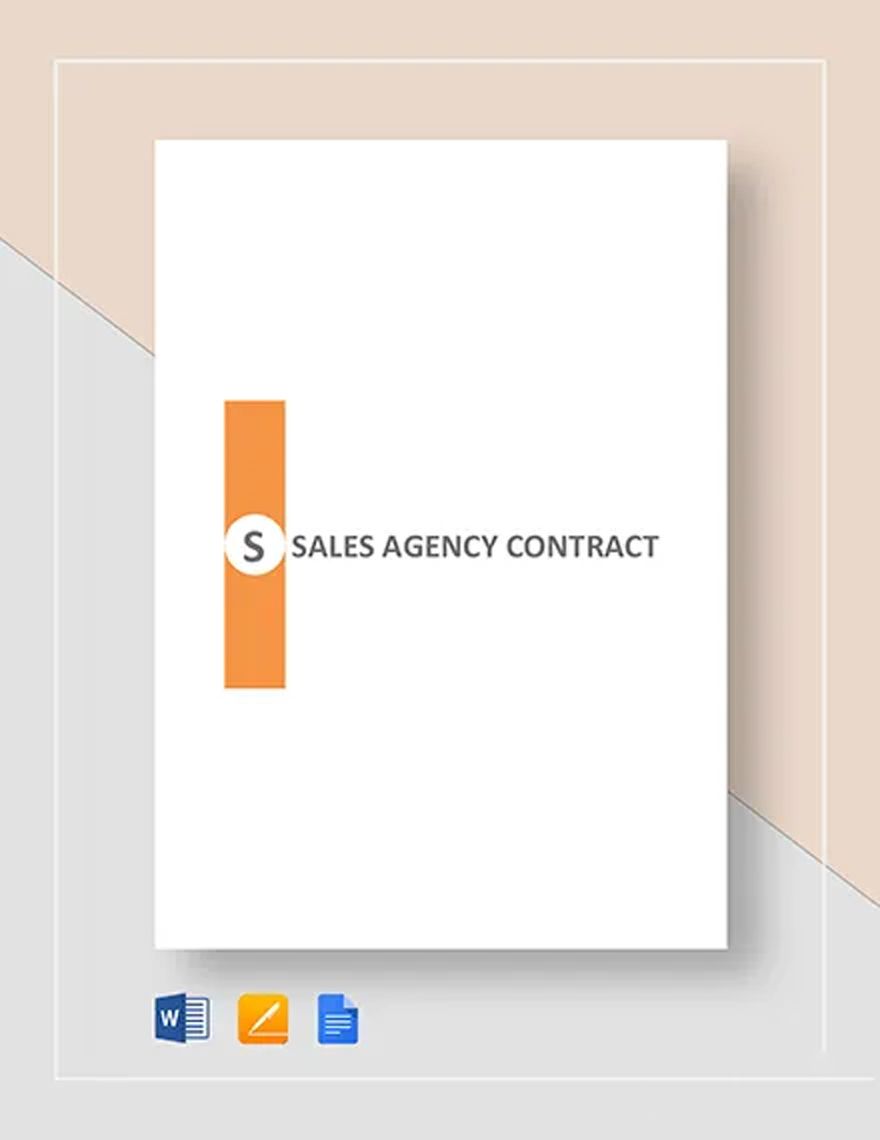People establish ties with one another to achieve the desired goal. Negotiations, deliberations, and conversations will elevate first to become an agreement whether they are matters concerning employment, travel, advertising, and recruitment. Bind and cement the deal with all related parties through our ready-made agency contract templates. Remind each other of the agreement you want to live out. Reach that conclusive promise to faithfully follow mutual obligations through our professionally designed, and meticulously crafted legal document. Please your clients and make it easy for the agents. Choose from our selection of sample templates fit for the congratulatory handshake, and welcoming tap on the shoulder. Avail now and get the deals done!
What is an Agency Contract?
An agency contract is a specially-designed legal contract that binds the first party with the second party, or other parties through an agent. The agent acts as the mediator for multiple parties and can modify the agreements as if the agent is the principal. The principal is the one who authorizes agents (on behalf of the principal) to establish relations. Thus, later agreements can be proposed and then on become effective through the agent.
How to Create an Agency Contract?
Avoiding legal complications is a prerogative to get your contracts right. Give accurate, precise, and thorough details to prevent confusion and probable contentions from concerned parties. Straighten out the formal agreements! Keep the relationship smooth by following these steps to get your agency contract done.
1. State the Business
A deal cannot start if parties do not know the topic. You must agree on something, so do state your business. It works both ways. The client needs to get hold of what matters to transact before going to the agency. Also, the agency gives a detailed list of the specifics about what it can offer. It could be an advertising agency or a health insurance agency. One party avails while the other provides. How will it happen? Then state the business.
2. Allow Negotiations
You need to maximize opportunities to get a done deal by not having a one-sided contract. Always consider that the other parties have demands. Although most of the time, the arrangements are prefabricated, allow negotiations to happen. Invite concerned parties to participate. Others are hesitant, so you need to have a cheerful and inviting atmosphere. As much as possible, these are friendly negotiations paired with hopeful proposals. Avoid argumentation!
3. Follow Legalities
The state, through the government, supervises the contracts to render them binding. Laws are implemented to make sure honesty, sincerity, and good faith are within the deals. Dishing out your sample contracts must have a legal basis and grounding. Other than that, it is null and void. Plus, no legitimate authority will acknowledge its authenticity if there is a breach. Ask legal advice through your lawyers or informative websites.
4. Keep it Clear
Say it clearly! And that goes for both parties. Both must establish a robust communicative action. Rationality and understanding are essential. Make it happen by stating the business clearly down to the minute detail. If it is not clear, then there will be a high chance of miscommunication. Thus, it will contribute to the inauthenticity of consent from contracting parties. You do not want to have bad business and wrong impression to people. Avoid obscurity and pursue clarity!
5. Give Space for Signatories
Signatures are the symbol of a done deal. Without those signatures, the contract is far from compelling, and worse, not binding. Verbal arrangements seem enough, but nothing else gives finality when it is on ink. Just like every formal letter, you can verify that the person exists through a sign. More so, notifications like “received” and “forwarded to” with a signature assure authenticity.
